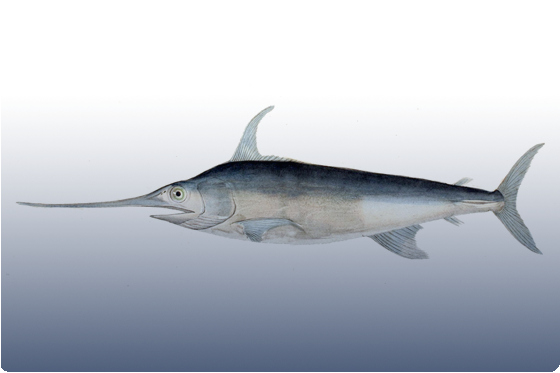
The National Marine Fisheries Service (NMFS) recently announced its intent to withdraw a rule that would have suspended the drift gillnet swordfish fishery in California and Oregon if the fishery were to exceed a limit (or “hard cap”) on deaths and injuries caused to certain turtles and marine mammals over a two-year period. This action is in response to a decision handed down by a federal district court last month.
In the United States, fisheries in offshore federal waters are governed by the Magnuson-Stevens Fishery Conservation and Management Act (MSA). The MSA establishes eight regional fishery management councils, which are responsible for recommending fishery management plans (FMPs) that balance the economic and environmental interests in their respective regions’ fisheries. However, FMPs are ultimately published in the Federal Register by NMFS and approved through the typical notice-and-comment rulemaking process. Additionally, the MSA identifies ten National Standards with which all FMPs must comply. National Standard 7 in particular indicates that FMP measures “shall, where practicable, minimize cost and avoid duplication,” which NMFS interprets as a broader mandate to avoid “unnecessary burdens on the economy” or anyone participating in it. 50 CFR § 600.340(a)-(b).
One of the fisheries regulated by the MSA is the drift gillnet swordfish fishery in California and Oregon. Because drift gillnets are large and hang in the water column, they can produce significant bycatch—i.e., fish or other marine species that are incidentally caught and subsequently discarded, but sometimes only after they have sustained injuries or died. The Pacific Regional Fishery Management Council recommended an FMP in 2015 calling for the closure of the drift gillnet swordfish fishery in California and Oregon if the fishery ever met or surpassed a hard cap on certain kinds of turtle and marine mammal bycatch over a two year-period. The closure would not be permanent, however; in the event of a closure, this proposal—which is also known as “the Hard Caps Rule”—envisioned the fishery reopening after two seasons of no hard cap exceedance. After reviewing the Hard Caps Rule and finding it consistent with the MSA, NMFS published the proposal for public comment in the Federal Register in October 2016. 81 FR 70660 (Oct. 13, 2016).
Comments received in response to the Hard Caps Rule’s publication prompted NMFS to further research its economic effects, revealing “significant adverse short-term economic effects that were not identified at the proposed rule stage.” Burke v. Coggins, Case No. 1:20-cv-00667 at 4 (D.D.C. Feb. 18, 2021). After finding that the proposed measures “would threaten the economic viability of the drift gill[ ]net fishery while providing minor environmental benefits,” NMFS concluded that the Hard Caps Rule was not consistent with National Standard 7 and withdrew it in June 2017. Id. But Oceana, an environmental nonprofit, subsequently won a lawsuit requiring NMFS to publish the Hard Caps Rule in the Federal Register as a final rule due to procedural technicalities. A group of commercial swordfish drift gillnet fishermen, in turn, sued to prevent NMFS from enforcing the Hard Caps Rule after its publication as a final rule in February 2020.
In a pun-laden opinion dated February 18, 2021, Judge Trevor N. McFadden of the U.S. District Court for the District of Columbia indicated that the court “casts its line in favor of the fishermen.” Id. at 2. The case was unusual, the court acknowledged, because NMFS also took the position that the rule should be vacated. Not only did this mean that Oceana had to intervene in the litigation to defend the Hard Caps Rule, but also that the agency action under review—which is usually entitled to deference by courts—would be NMFS’s determination that the Hard Caps Rule conflicts with National Standard 7, rather than the position the agency originally took prior to publishing the proposal in October 2016. See id. at 12.
This observation proved significant, as it was agency deference that ultimately won the day. Despite Oceana arguing that NMFS made an “impermissible post-hoc determination” when it determined the Hard Caps Rule conflicts with National Standard 7, the court found NMFS’s U-turn to be sufficiently supported by the record to satisfy the Administrative Procedure Act’s requirement that agency actions be neither arbitrary nor capricious. See id. at 11-13. The court was similarly unpersuaded by Oceana’s claims that NMFS reversed its decision without properly accounting for the Hard Caps Rule’s economic impacts and, separately, that the court should not vacate the rule because doing so would be too disruptive. See id. at 13-20.
Oceana’s window to file an appeal of Judge McFadden’s decision closed on March 20, 2021, but NMFS is reportedly contemplating a new round of rulemaking to fix the proposal. For now, the Hard Caps Rule’s future remains in uncertain waters.












